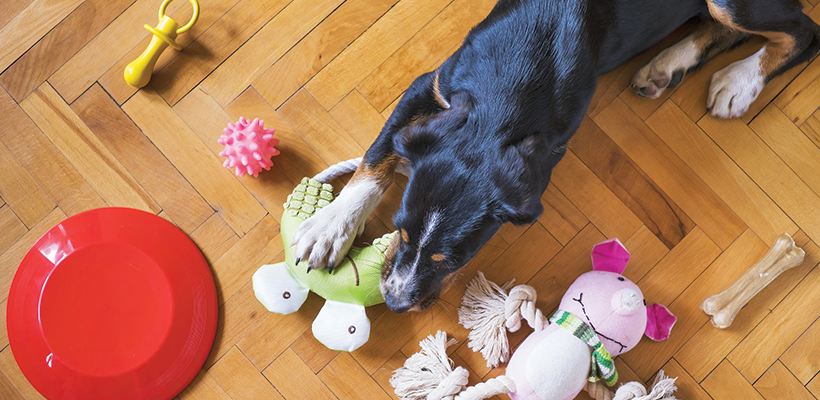
This article is contributed by guest writer, Josh Cobbe at petdogplanet.com
When Do Puppies Stop Chewing On Everything?
Puppies are just setting out to explore the world. And what better way to do it for them than to chew on the new objects they find. By chewing, the younger dogs relieve the pain they feel from incoming teeth.
The older dogs chew to keep their teeth clean and their jaws strong. Dogs also chew to get rid of boredom and deal with frustration and anxiety. But you may be wondering, when do puppies stop chewing on everything? We have discussed this topic in detail in this article, so read on to find out how you can deal with this inevitable situation.
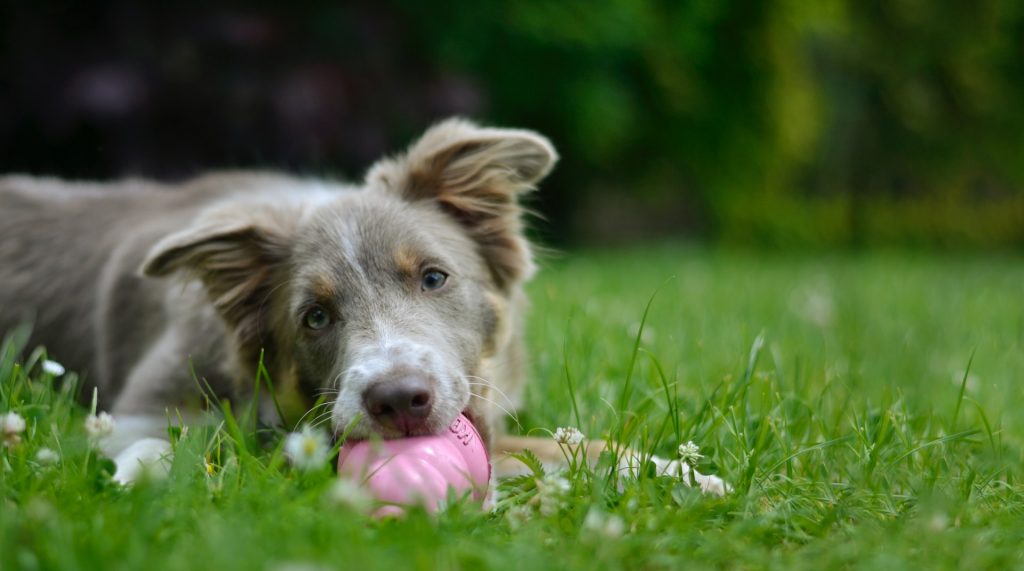
What Causes Destructive Chewing?
Before we begin fixing the problem, let’s find out what causes it.
Separation Anxiety
Many dogs chew to deal with being left alone. These dogs will chew mostly to deal with the stress of separation anxiety, and they chew most intensely when they are left alone. Many dogs that are burdened with separation anxiety find other ways to express their stress, such as whining, urination, defecation, barking, restlessness, whining, and pacing.
Being Hungry
Many of you place your dogs on a calorie-restricted diet for various reasons. Dogs that are placed on such diets tend to chew objects destructively as they hunt for additional nutritional sources. In this situation, dogs will usually chew on objects that resemble food or have a taste or smell like food. This is why it is important to have your puppy on a feeding schedule that is right for them.
Sucking On Fabric
There are dogs that chew, suck, and lick fabrics, with many experts believing the cause of this being weaned too early. This sucking behavior becomes compulsive for many dogs, as it becomes increasingly difficult to distract them, and they continue this behavior for extended periods of time.
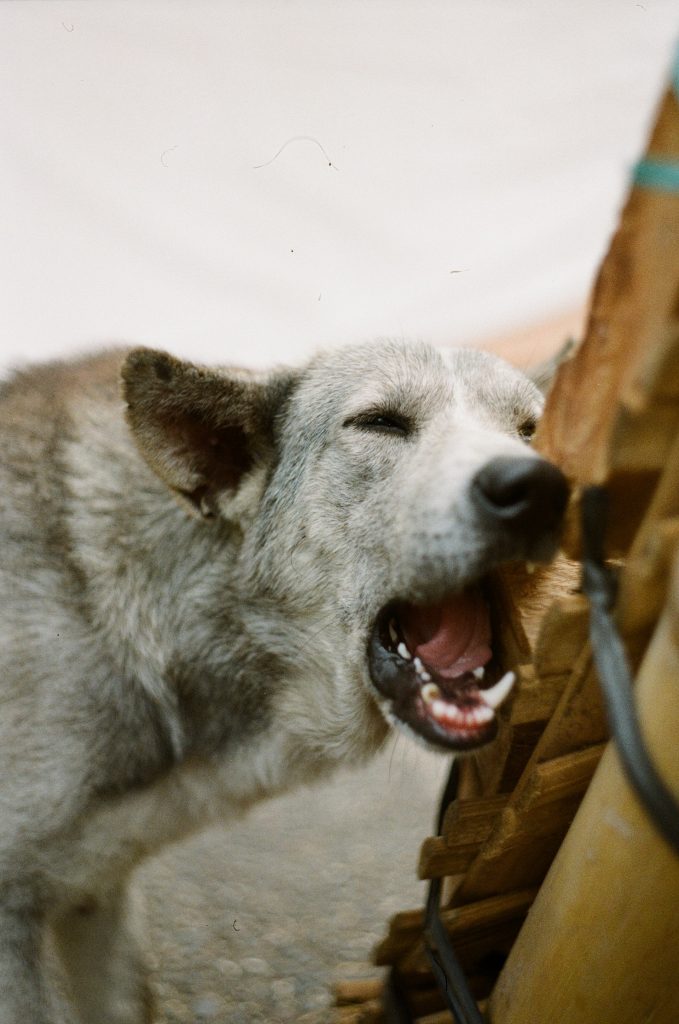
Tips to Manage your Dogs Chewing
Now that we know what causes the dog’s destructive chewing let us find out a few ways to manage it.
The Teething Puppy
Many puppies chew simply from the discomfort of teething or just to investigate an interesting new object. Like human babies, the puppies also go through the painful stage as their adult teeth replace their baby teeth. This stage is known to be over as the puppies reach six months of age. Many people recommend giving frozen wet washcloths, ice cubes, dog toys that can be especially frozen for your dog to chew so that the teething pain can be numbed. Puppies do require chewing on things. But you need to train them gently onto which objects they are allowed to chew and which not to. It’s important to find out when puppies stop biting, how to teach a puppy not to bite, and all other related information.
What Chewing Behavior is Normal
It is normal for dogs of any age to chew. Bones are most commonly chewed by domestic and wild dogs alike. This way, they are able to keep their teeth clean and their jaws in strong shape. Hence, dogs love to chew on anything that is available to them, mostly sticks and bones. They mainly chew for fun, but also to get relief from anxiety and to get stimulated. Some dogs might direct their chewing to things that they are not supposed to. The best solution to this is to provide the dogs with a variety of chew toys and also to teach them which things are ok to chew and which are not. You need to be patient with them, teaching them in a humane and gentle manner.
Dog-proof your House
The best way to protect your valuable items from getting chewed on by your dog is to put them away until your dog has learned what the appropriate things to chew are. You can put away your shoes and clothing in a closet and keep it closed. Books need to go on shelves, and dirty laundry can be stored in a hamper, all out of your dog’s reach.
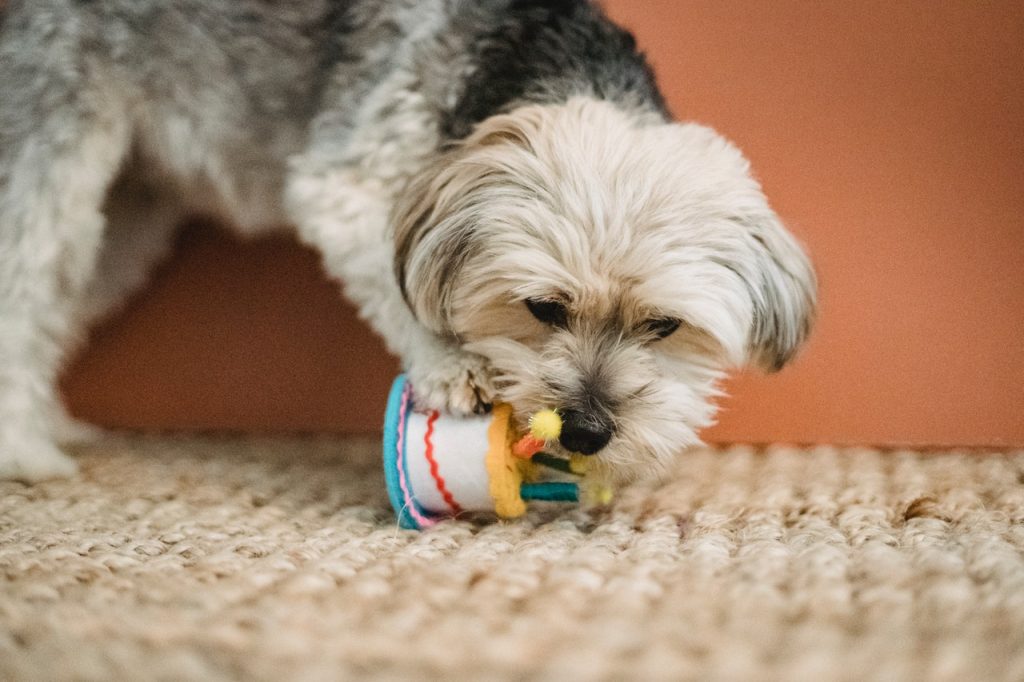
Provide Your Dog With Chewable Toys
Your dog needs to have its own inedible chew bones and other toys. Best if you source out toys that will keep your pup chewing for a long time. You also need to ensure that your puppy doesn’t get bored of the same toys by rotating the chew toys every few days. While getting bones, you have to ensure that you get bones that are natural; these are sold specifically for your dog to chew. Chicken wings or leftover t-bones can really injure your dog as they can splinter, so beware of giving those to your dog. Some avid chewers can chip away small pieces while chewing natural bones or might even chip their own teeth as they are chewing. You can consult with your vet to find out what to give to your dog for chewing.
Give It Edible Things to Chew
You can give your dog edible things that it can chew, such as pig ears, bully sticks, pigskin rolls, rawhide bones, or other natural chews. You need to be cautious as a dog may bite off and swallow large chunks of an edible chew and choke on it. If your dog is known to do this, then help it to relax by separating it from other dogs while it chews. If your dog is in the presence of other dogs, then it might feel competitive, and try to quickly gulp down the edible items. You need to keep them under supervision when it is chewing on an edible chew so you can intervene quickly if it starts to choke.
Discourage Chewing Inappropriate Items
If you want to keep your valuables safe from being chewed by your puppy, you can spray them with chewing deterrents. You can do this by applying a small amount of detergent on a ball of cotton wool or tissue and then gently place it on your dog’s mouth. If the taste is unpleasant to your dog, it will retch, drool, or shake its head and won’t pick the piece of wool up again. This way, the dog will be able to identify the taste and smell of the deterrent and won’t chew on anything that smells or tastes like it.
So you should spray the deterrent on everything that is valuable, and you don’t want the job chewing on. You can reapply it every other day and keep applying it for two weeks. But this is just a temporary solution to destructive chewing habits. You need to teach your dog thoroughly what items it can and what items it cannot chew.
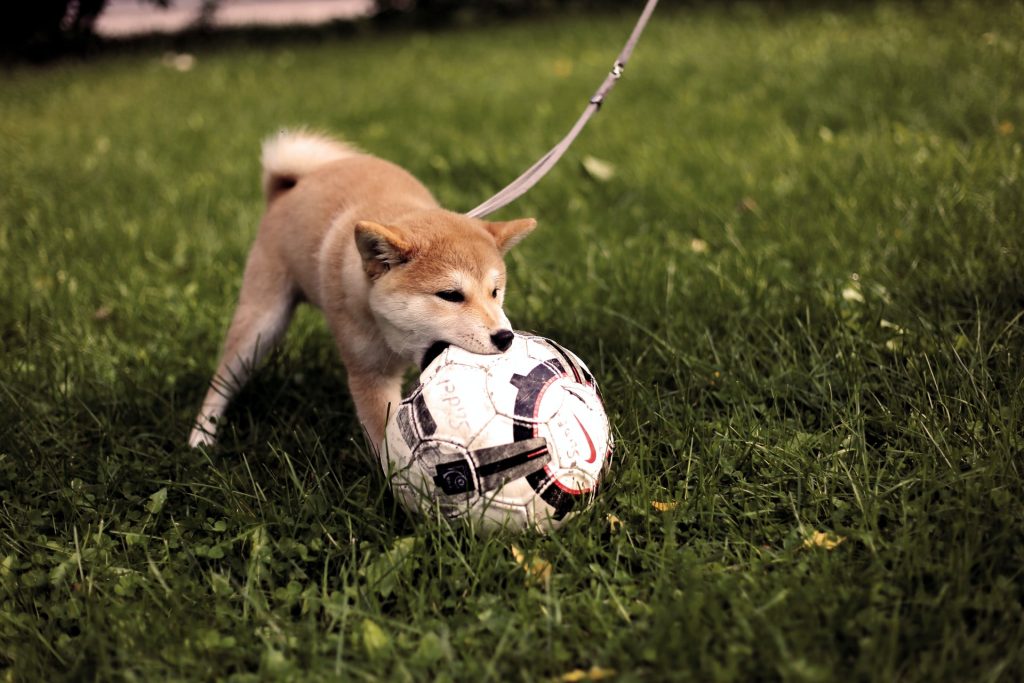
Supervise your Dog
Until you are confident that the destructive chewing behavior of your dog is under control, you need to monitor it during all waking hours. If you catch it chewing or licking something inappropriate, then let it know and remove it from the dog’s mouth by replacing it with something that it is allowed to chew.
If you are not able to supervise the dog, then you must find ways of preventing your dog from chewing things that it isn’t allowed to. For instance, when you go to work, you can keep your dog in a confined area for up to six hours. You can do this by putting your dog inside a crate or leaving it in a small room with the baby gate closed. You must ensure to remove all inappropriate chew items from the confinement area and leave chew toys so your dog doesn’t get bored.
Spend Time with your Dog
If you leave your dog in any confinement throughout the day, you must ensure to spend lots of time with it to make it up. Before putting it in confinement, you must give it ample playtime. You need to spend sufficient time with your dog to make sure it gets sufficient physical exercise that can be with you or with other dogs. You also need to keep your dog mentally stimulated to keep it busy with training or take it out to social visits.
Refrain from Giving your Dog Unwanted Items
If you want to effectively teach your dog the difference between what he is allowed to chew and what he isn’t, you should refrain from giving it unwanted house items like cushions you have discarded or shoes you no longer wear. This way, the dog will not get confused as to what it is allowed to chew and whatnot, as all shoes might be the same for it.
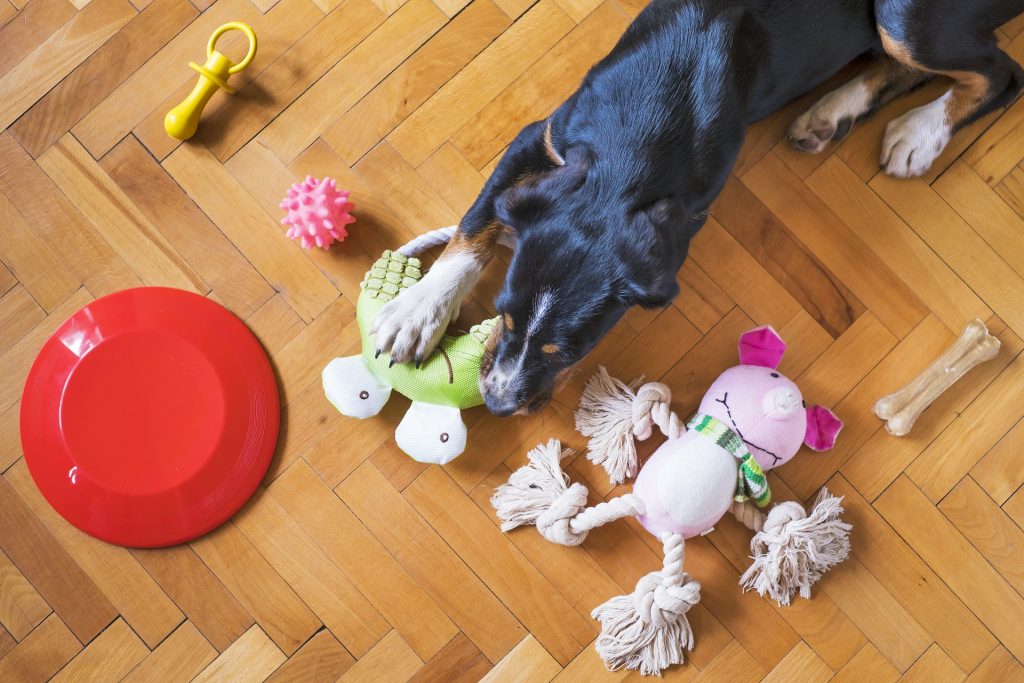
Not Enough Mental Stimulation or Exercise
Sometimes when a dog doesn’t get stimulated mentally or doesn’t get sufficient exercise, they tend to get bored. This leads them to look for ways to keep them entertained, with chewing being a popular option with them. To avoid this, you need to give your dog ample opportunity to exercise its mind and body. There are plenty of ways you can get about doing it, with tug and fetch games, daily walks, clicker training classes, off-leash play times with other dogs, feeding meals inside food puzzle toys, among others. You can also indulge your dog in various dog sports like freestyle, flyball, agility to keep them stimulated.
Is your Dog Stressed Out?
Dogs can get stressed out if it is crated near an animal it does not like or if children tease it when it is confined in a car. When it gets stressed, it will chew. So to avoid this, you need to avoid situations that can frustrate or stress out your dog. If your dog doesn’t get upset, it won’t engage in destructive chewing.
Then again, if you prevent your dog from doing activities that excite them, they are likely to divert that excitement towards chewing nearby objects. Dogs that live in shelters will sometimes shake bowls or blankets in their kennels to grab the attention of people passing by. If they don’t get this attention, they get frustrated, often engaging in destructive behavior.
If your dog is constrained behind a gate, it will chew at the gate when it sees a squirrel run by outside, and it is not able to chase after the squirrel. Dogs might chew their leashes when they see another dog getting trained in the distance. You need to be able to tell beforehand when your dog might get frustrated and give it a toy to chew. You can tie a rope toy by the gate or barrier when you place your dog inside a fence or a gate. Provide the shelter dogs with toys and train them to sit quietly at the front of their kennels when they want to attract passersby.
Summary
You need to be patient through the teething stage of your puppy and let it ride out this stage. Follow the tips we provided in the article to make it easier for both you and your puppy while you ride out this phase. Hopefully, it will be over soon, and you will be able to enjoy the best time with your dog just like you always hoped it would be.
